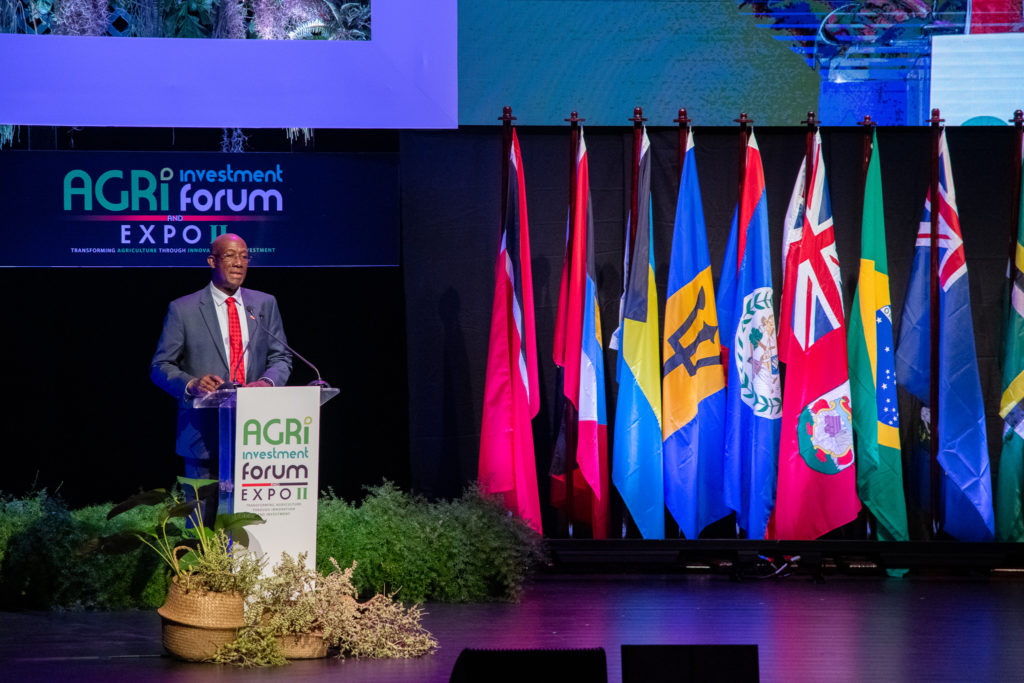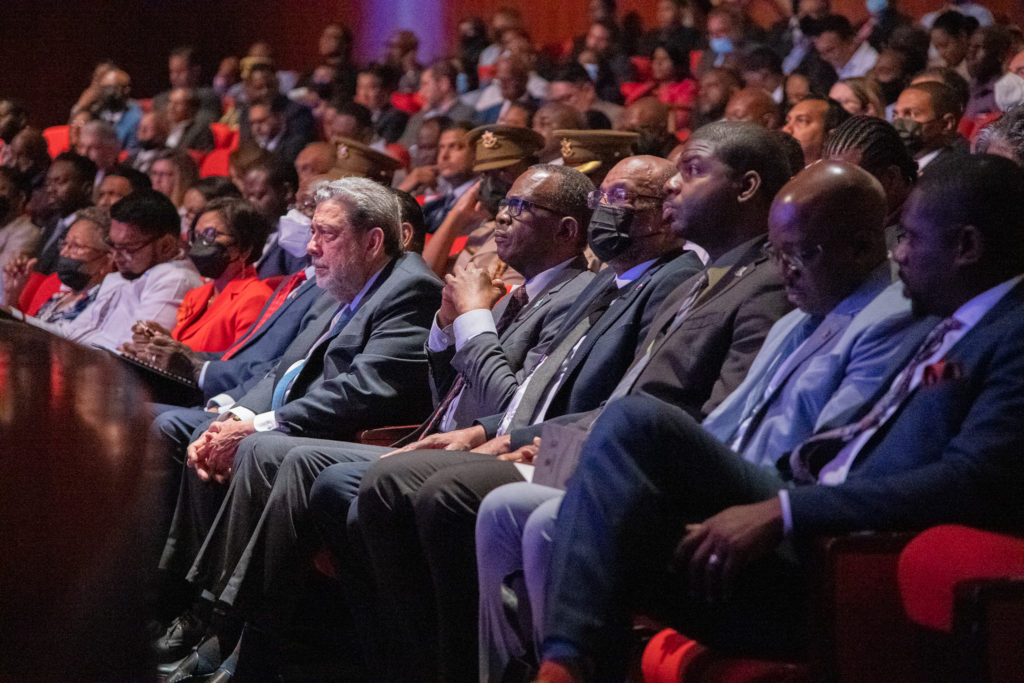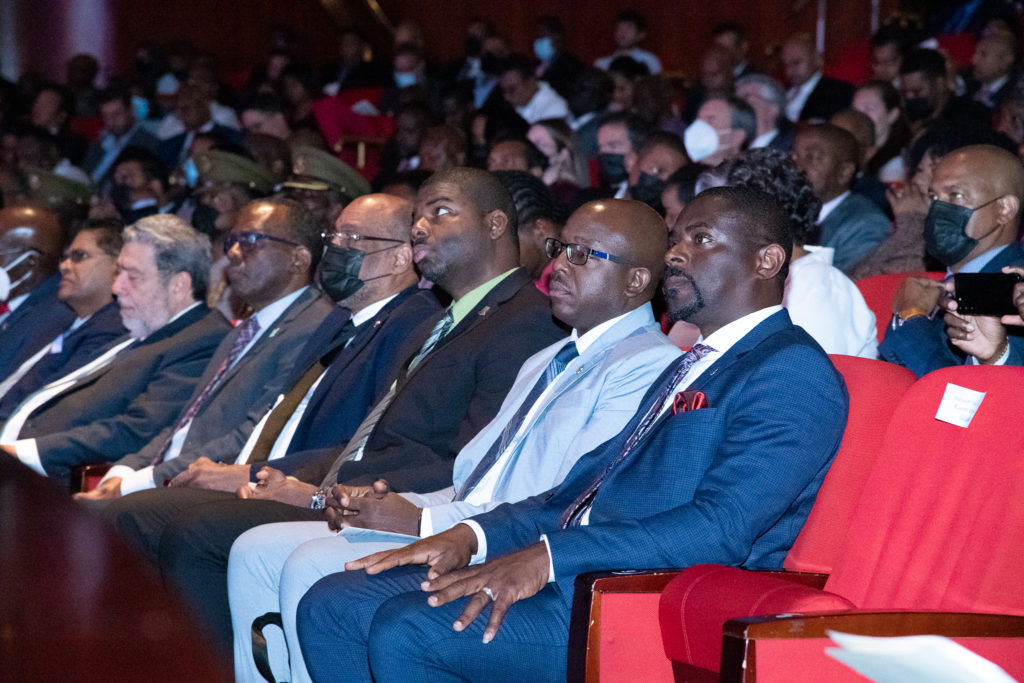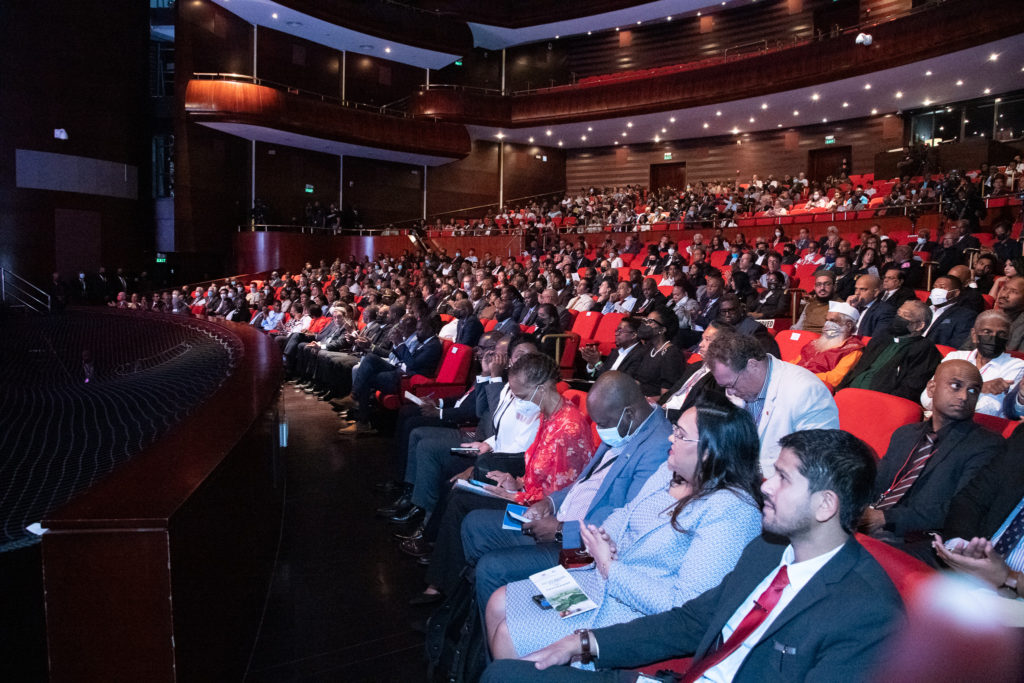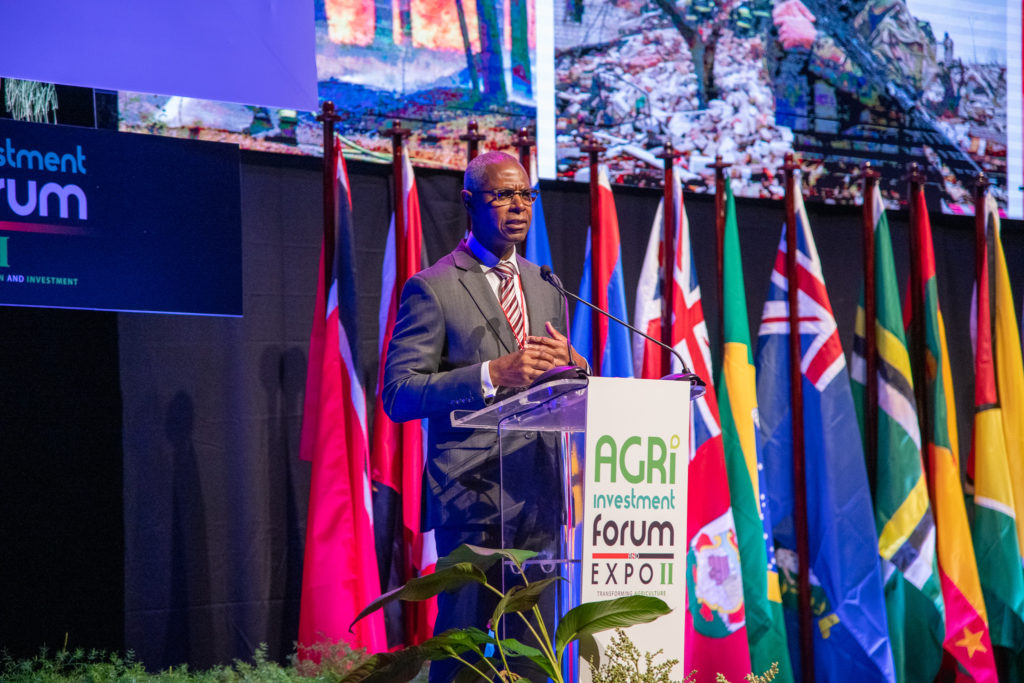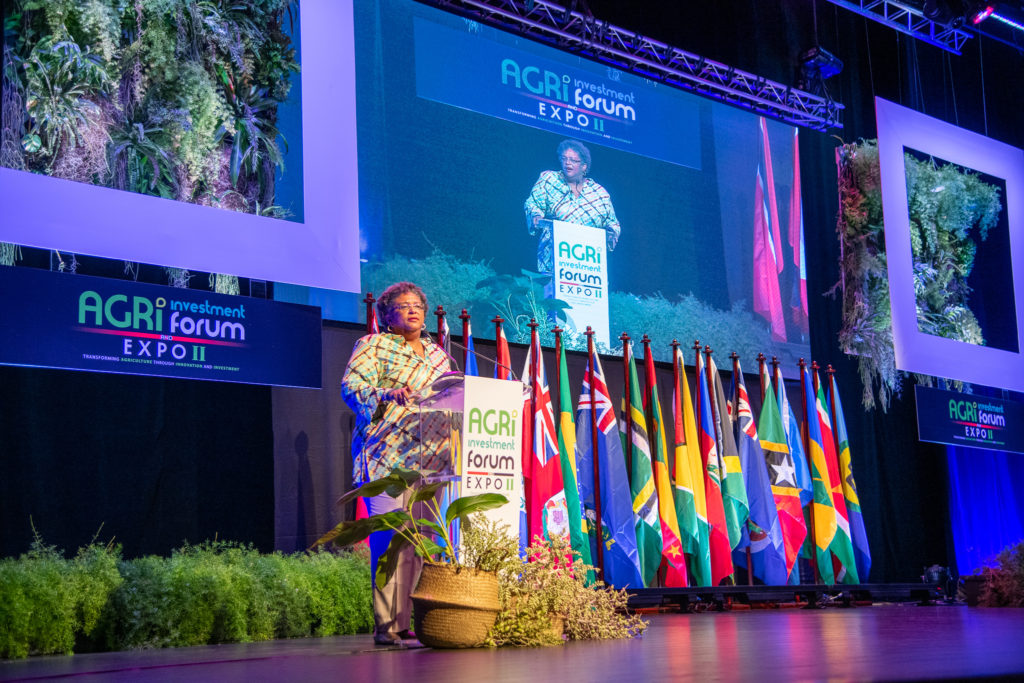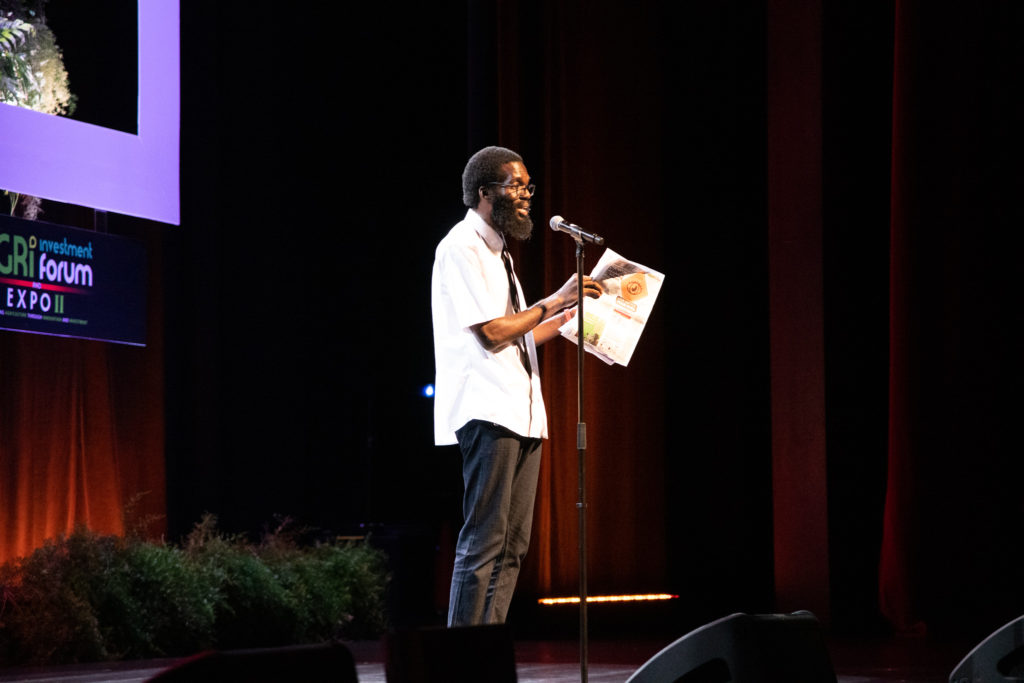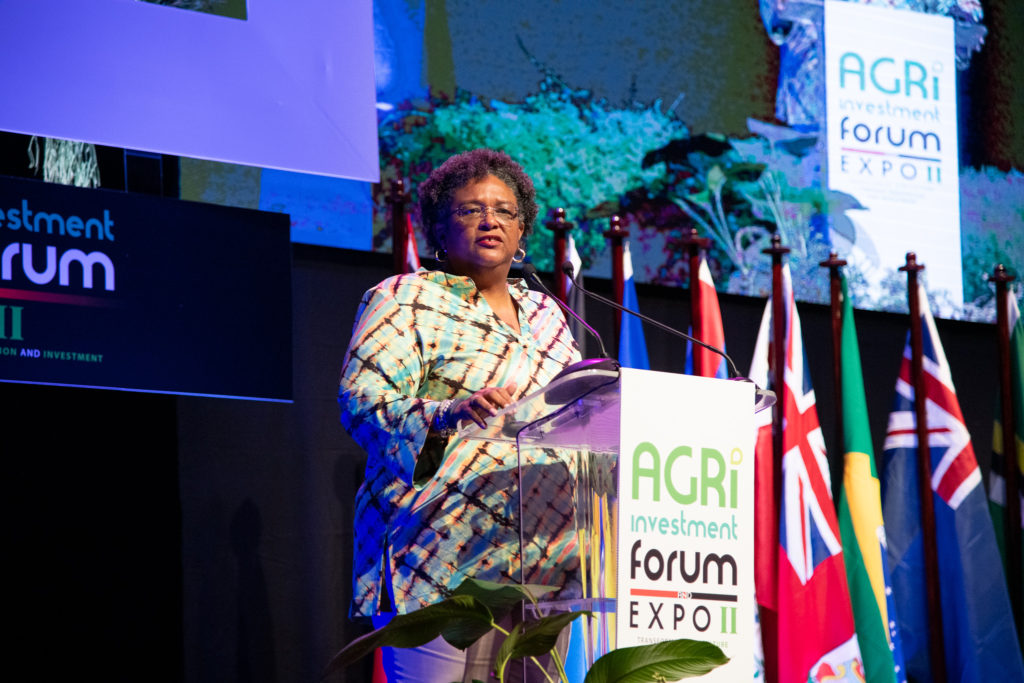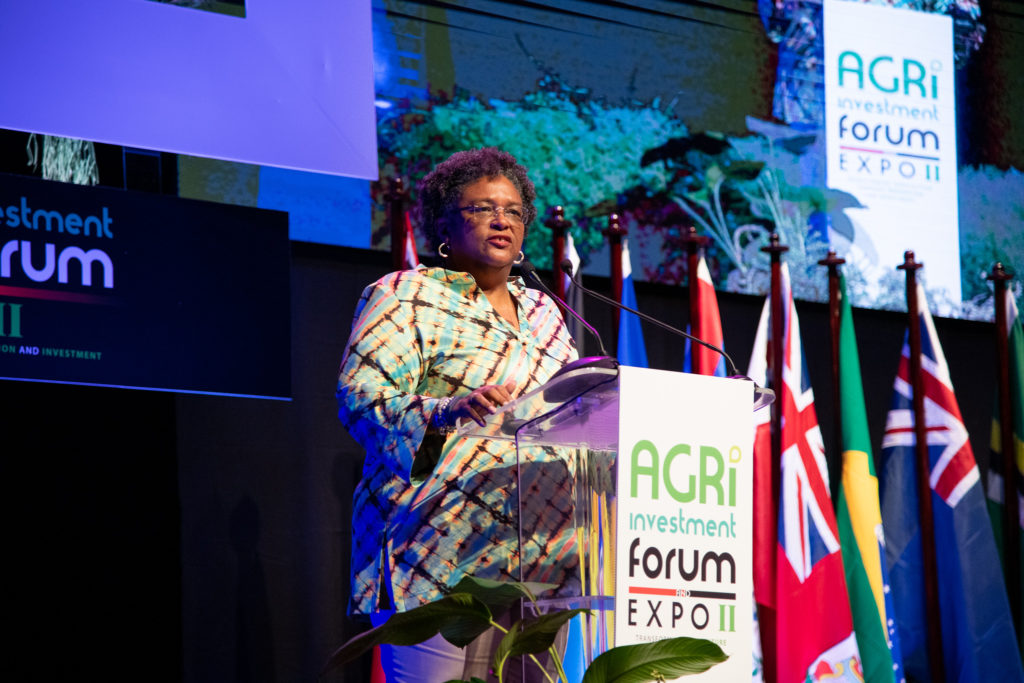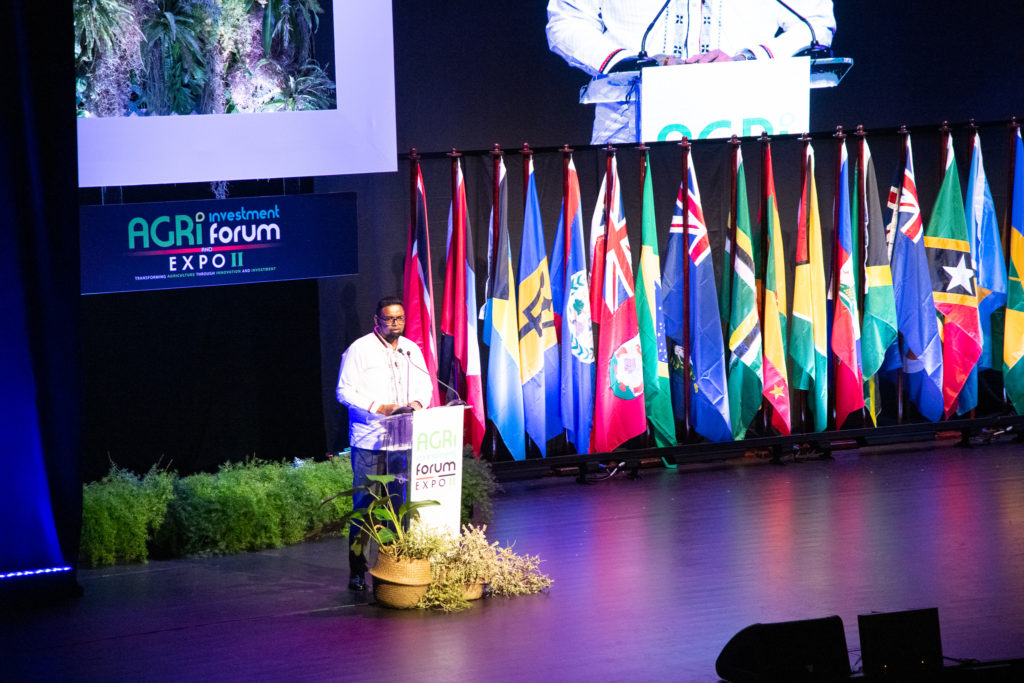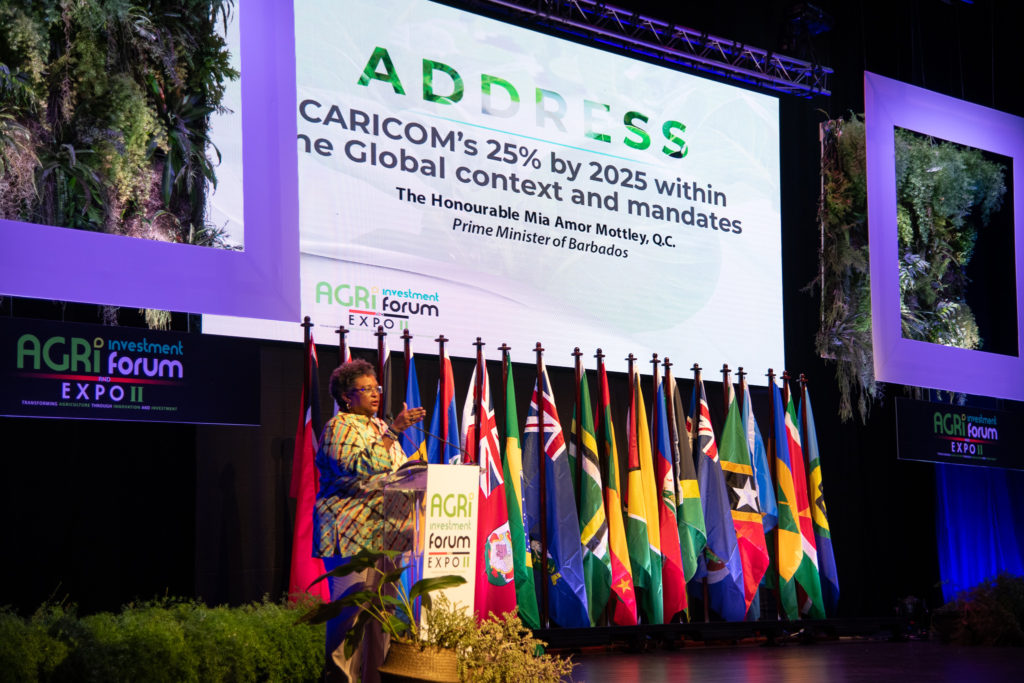Transcript of remarks delivered by the Honourable Mia Amor Mottley, Q.C., M.P., Prime Minister of Barbados, at the Agri-Investment Forum and Expo II, in Trinidad on Friday, August 19, 2022.
Good morning, everyone.
Acting President of the Republic of Trinidad and Tobago, Madam Christine, your Excellency, Madam Christine Kangaloo, Prime Minister Rowley, our distinguished hosts; distinguished Heads of State and Government; distinguished Caribbean citizens, all.
I don’t intend to be long today because this is a work in progress. And our work is not to make speeches. Our work is to get the production going and why?
We have the confluence of three global crises. We are at war with climate. We are at war with the remaining aspects of pandemics, not just the COVID-19 pandemic, but also the antimicrobial resistance slow (motion) pandemic, which is actually going to hurt more of us as we go forward simply because our bodies are not fighting off the super viruses. And of course, we are at war with inflation as a result of war with war.
And if ever, therefore, there was a time, as you’ve heard from all who have spoken thus far and all who I’m sure will come, for us to act with a great sense of the urgency of now, it is now.
We have been, as recent as this week, receiving stories in the news media of the acute droughts that are taking place not just in North America, but in China and other parts of the world. We expect that this will all have an impact on the supply of food going into next year. It therefore means that our plans cannot only be the medium-term plans to substitute feed, which we must do as Guyana is planning to do under the distinguished leadership of my brother, President Ali, by 2025, with corn and soy production being ramped up to scale. But in the interim, we don’t have the luxury of that because we have a population that is feeling the vagaries and the negative consequences of rampant inflation. But inflation is going to also reinforce the fact that the lack of access is going to be there because of these droughts.
It is against that backdrop that in Guyana I spoke about the six-week crops and the 12-week crops, and I speak today also about the six-week livestock. None of us can avoid the reality that our people must eat.
And the reality is that there are things that we can do and that we have done in our past to ensure survival. And we are there again. Whether it is rabbits or chickens, whether it is fishing, whether it is new forays, as we are doing in Barbados into aquaculture, we have the responsibility for urgent action today.
Since Guyana, we were asked also to put together a framework for financing. We have, Barbados has worked assiduously with the financiers as well as with the regional and international organizations; we have written every Minister of Agriculture asking for the projects. Some have started to come in already. They have been loaded on the electronic dashboard that will be available for Heads to see today. But also on that dashboard will be training support from CARDI and why? Because we have to admit, regrettably, that many of our people have lost the art of farming and lost the knowledge and therefore the pivotal role of those videos, as long as well with the support of the extension services in our Ministries of Agriculture, will become critical.
But it is not only the small scale production that is going to help us solve the problem. That will help ease the hunger, but it will not reach the goal of 25 by 2025. And quite frankly, with the confluence of the three global events, as I indicated in Guyana, I don’t know that 25 by 2025 is any more appropriate.
In September 2018, when we set this target at the Regional Ministers of Agriculture meeting in Barbados, it was not a world that was being driven by a pandemic, nor by inflation. We knew of the vagaries of climate, but it was not yet what we are.
I therefore suspect that while Mr. Warner has set himself the target of trying to substitute the $1.2 billion in production, the reality of what is happening globally will demand of us, moving those targets almost as we start. And that we should have no problem with, because we in the Caribbean are accustomed to responding to people moving goalposts on us all the time. So let us do it the way that we know to do it best.
With respect to the other aspect besides financing – the issue of transport, well, what can I say? The region has to confront these difficult issues of transport with respect to the maritime and the air. Heads are working. But as I said at the beginning, this is a work in progress. And regrettably, we have not yet reached the point where we can deal with this in a way that is necessary. We need to look at what air transport there is for the perishables and see how we can support the movement on it.
I want to end on this one point. And I want to speak to Caribbean people, because Caribbean people now will determine how we get through these crises. Our expectations have to change, and our ability to be able to do things differently must also come to the table.
We have to start eating what we grow and growing what we eat. And we have to do it not only because of the economic requirements, but because of the health requirements. The reality is that every major health site will tell you about the appropriate use of low glycemic foods. Most of that we grow here and we grow it, and our youngsters eat macaroni pie and fries. We’ve got to change that. We’ve got to work with the fast-food organizations, Gervais, and get them too, to change their menu. It’s not good enough for us to make speeches about colonialism in the supermarkets if we’re not prepared to change people’s access to the food. You go to the United States of America or the United Kingdom or Europe, and you see everybody now using the ground provisions in chips, from sweet potato chips to breadfruit chips to all other kinds of chips. I want us to work with Caribbean people to change that.
Secondly, I met with the sweet drink manufacturers about a month ago, one of the premium ones – not my business to promote – but one of the things that I indicated is that it is a crying shame that there is no Caribbean calorie counter. How much calories in the roti that you want to serve me later, Keith? You understand. How much calories in the bread fruit? How much calories in all of the Caribbean foods that we eat in the corn soup? In the oil down?
Unless we start to give our people access to that may entreaty to Caribbean people to watch their calories as I, and I know the difficulty, I (am) big, I ain’t small. You understand? So I understand the pressure, but the reality is we don’t have a choice. And therefore, for the first time we have the opportunity of production matching what we absolutely need. But the missing part of the equation will be the Caribbean family and individuals who will make that defining difference as to whether this exercise will be successful.
So we get it. We have a job to make the food accessible and affordable, and you have the job to want to choose it, to eat it, so that there is that market.
You know, we, 50 years almost, later, from those words of that great Trinidadian who is no longer with us, Shadow – Keith from your homeland: “not even a bassman in our head, should stop us from planting peas in Tobago”. Because we simply have to make the grade this time. It cannot be just another exercise.
We are facing a pivotal moment in Caribbean civilization. And it is up to us, not just as leaders, but as Caribbean people, to embrace this opportunity as you heard from those who spoke before: the Secretary-General and the head of the CPSO, and to ensure that while others may be wondering what to do and how they’re going to get through it, we have planned, we have secured and we’ve understood the battle both at the level of the small holder, but also at the level of large production entities to transform, ultimately, the production and agro-processing of food in this region.
Food and water are the new oil. Let us, to the task, ensure that all of our people benefit from it in terms of their health, but also in terms of their pockets.
Thank you. God bless us.

